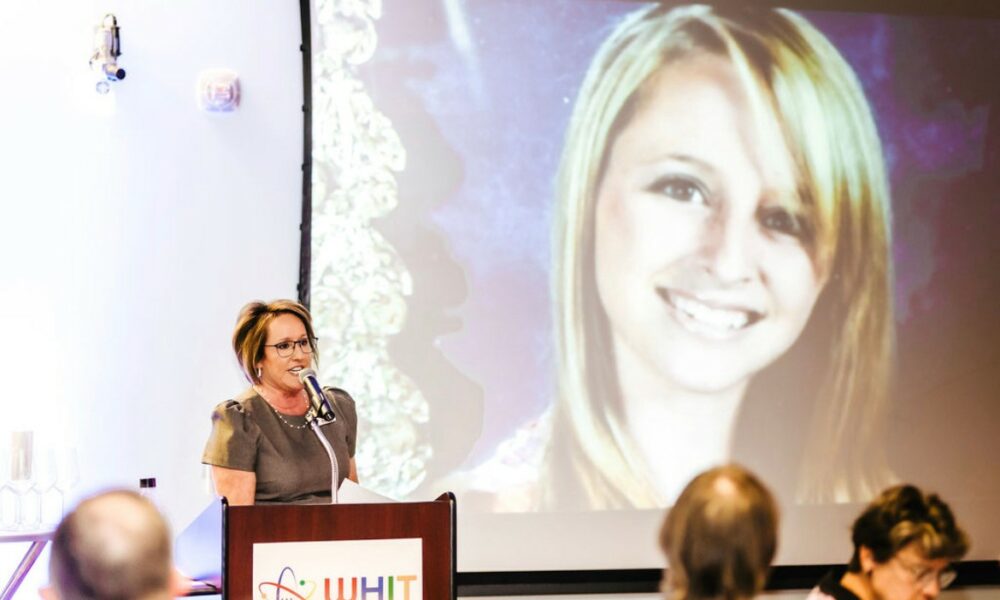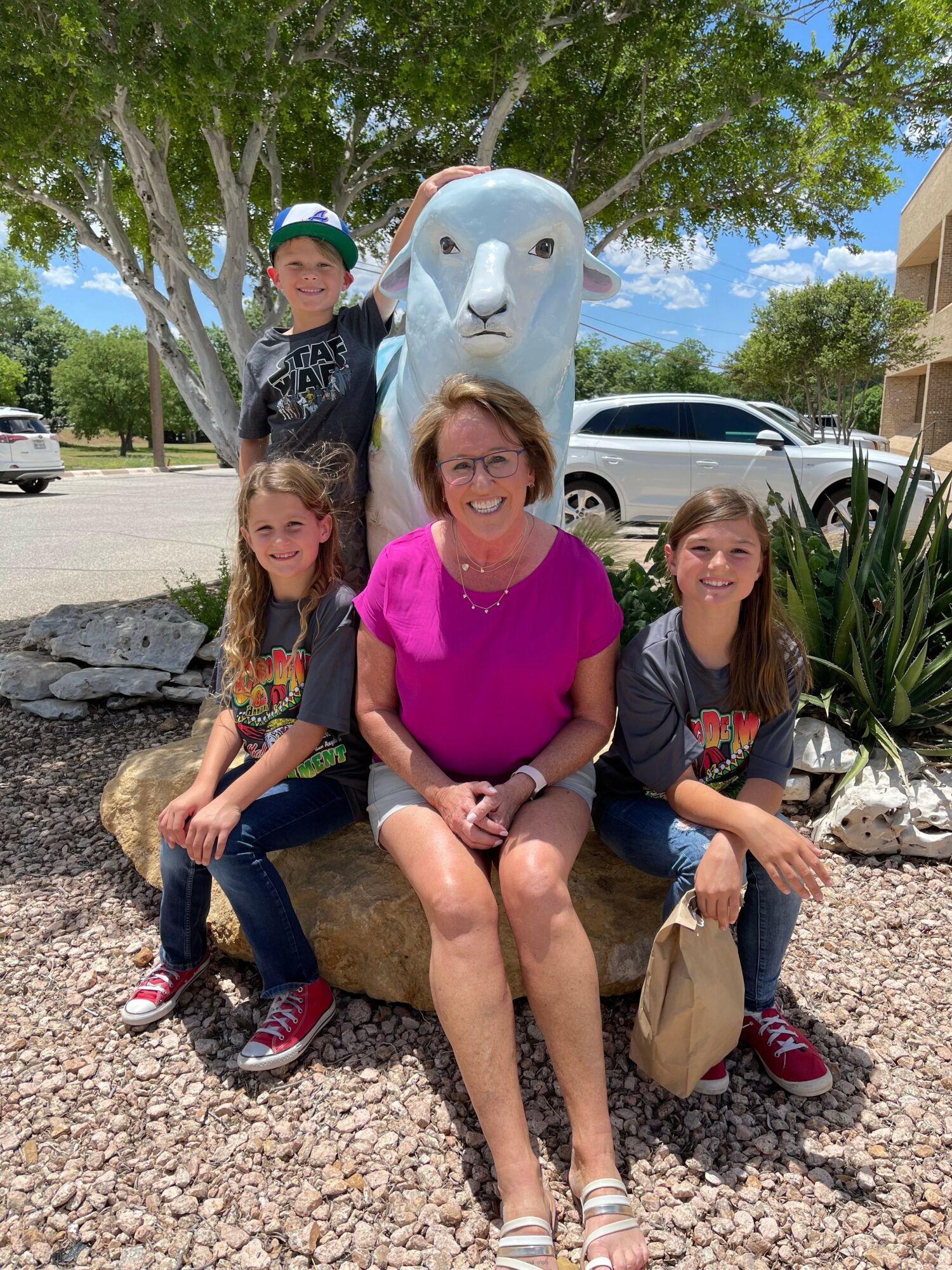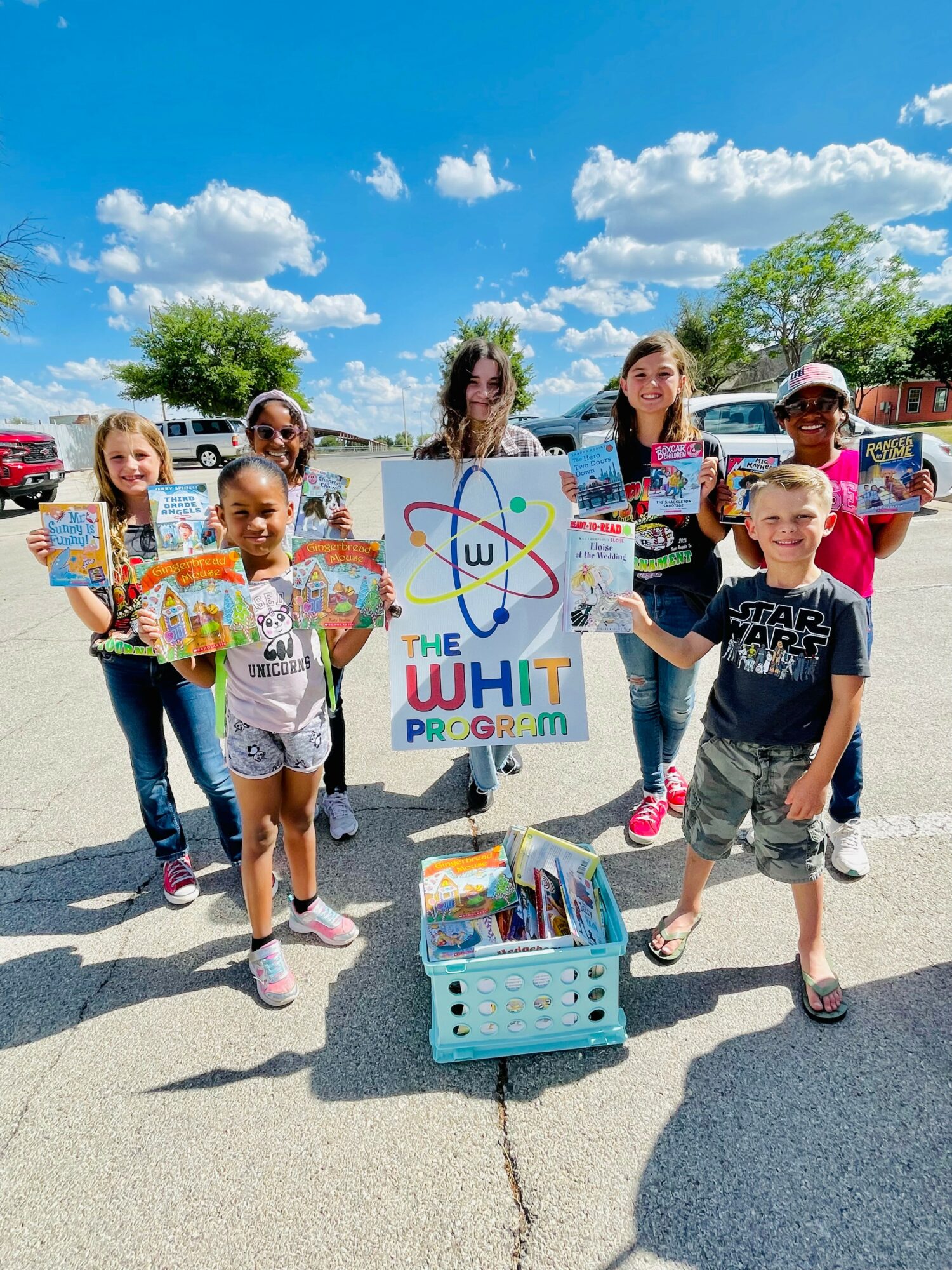

Today we’d like to introduce you to Jennifer Lisson.
Hi, Jennifer, we’d love for you to start by introducing yourself.
The WHIT Program provides free tutoring to children in foster care.
WHIT stands for Weekly Hands-on Independent Tutoring. It also was the nickname of my daughter, Whitney, who was killed in a drunk driving accident about 10 years ago. She had a huge heart and cared so much for others that I started The WHIT Program in honor of her and her generosity and kindness to others. I will say this: after I lost my only child, I lost my purpose for being here, as I’m sure you can imagine. Well, this has given me THE reason I stayed here (on earth). These kids need us, and so do all communities.
WHIT works with university honors and education program student volunteers. We train them in confidentiality, tutoring theory (taught by two education professors), and spotting abuse and neglect. We then match them with a foster child who is a grade level or more behind in school.
WHIT grew out of my service as a CASA (Court Appointed Special Advocate) volunteer. Every child I advocated for – every one – was behind in school. Yet unless they had a disability that qualified them for special programs at their schools, there were no services to help these kids. So, we started our own.
We began in San Angelo in 2021. In less than a year of operation, we were so successful that the Texas Department of Family & Protective Services approved us to expand statewide. We now are working with multiple universities and CPS offices in counties throughout Texas, and hope to expand further in the next few years. Also, in our first year of operation, we were voted the Best Community Service in the Nation for 2021-22, by the National Collegiate Honors Society, for our work with the Angelo State University Honors Program. We’ve also been contacted by six other states, asking that we work in their regions as well.
Alright, so let’s dig a little deeper into the story – has it been an easy path overall, and if not, what were the challenges you’ve had to overcome?
Our biggest initial hurdle was overcoming the wall of confidentiality that surrounds identification of foster children by Child Protective Services. But once we were able to break down that wall, our growth has been exceeded only by the need.
Of course, we have to navigate the rules of each university we work with, each new regional CPS office, and explain our program to the foster families and foster children we serve. But when people realize that we’re truly here for the benefit of the children, and it costs nothing for them other than a bit of time, people tend to jump on board. It is always difficult to say no to free help.
One of our challenges is we don’t receive any government funding, so we rely solely on private donations to continue to help these children graduate high school. People don’t realize that foster children have the lowest high-school graduation rate of any group tracked by the Texas Education Agency. Lower than even homeless children! There is definitely a missing link in the system, and that’s why we’re here.
If that doesn’t touch your heart, consider this: Dropouts cost the United States $290 billion in government and taxpayer money. That usually resonates with people.
Can you tell our readers more about what you do and what you think sets you apart from others?
The WHIT Program is a non-profit that provides free tutoring to foster children in foster care. These are kids who have all suffered the trauma of abuse, neglect, and being pulled away from their homes and put in an unfamiliar place.
Foster children have the lowest high-school graduation rate of any group tracked by the state of Texas, at only 62%. That’s lower than even homeless children. Only 2.6% get a college or two-year degree.
There are over 22,000 foster children in Texas alone. At the current rate, more than 8,000 of those will never complete high school, and fewer than 600 will ever get a two- or four-year degree. In the United States, there are almost 450,000 foster children. That’s a lot of kids not completing their education!
I began the WHIT program as a CASA Volunteer, which stands for Court Appointed Special Advocate, which means I stand up for foster kids in a court of law and advocate for their needs. With this, I found that every one of my kiddos was behind in school, and I couldn’t find a program to help them. All of the existing programs cost money. There are government programs in and out of schools for children with a disability (dyslexia, ADHD, etc.) that give free help, but absolutely nothing for the child that isn’t disabled. The system was broken for them. Also, the state of Texas pays 100% of college tuition for these kids. We did a poll our first year, and 75% didn’t even know about this. So there was a real hole in the system.
As you can imagine, most of our kiddos come to our program extremely discouraged and hopeless about their futures But after WHIT, they end up feeling optimistic and excited about their own opportunities. We tell them about their free tuition as well as having our tutors give them a tour of their campus to alleviate any trepidation of setting foot on one. Most are intimidated about being able to navigate a campus. We fix that, too.
What we do is use university’s Honors and Education Program students to tutor these children. The tutors must pass a DFPS background check, sign a confidentiality agreement, and get trained on tutoring through our program.
These tutors not only catch their fosters up to grade level, but they become mentors to them.
We have found that the tutors get as much out of this as the foster children. They start tutoring because many university programs require community service, but they end their WHIT journey feeling inspired by knowing they changed the direction of a child’s life. By giving just one hour a week, it’s changes everything for these kids. Some of our tutors end up changing their major to education, law, or even social work. It’s a win for everyone! Universities, college students, your community, but mostly a child benefit from this. Universities get money for the tuition of the child; college students get community service credit as well as knowing how to make a huge impact on a child and consequently their community, the child gets a brighter future. Even taxpayers benefit. Dropping out of school has cost taxpayers over $290 billion in expenditures, prison, and government and social programs. Prisons know how many beds they need based on the yearly dropout rate. In fact, incarceration of former foster children is so prevalent that it has its term: The foster to prison pipeline.”
Well, we are here to change this. This isn’t just one generation that is affected. The cycle is a “snowball effect.” It’s passed down from generation to generation. This is something that HAS to stop! We figure that if we can help these children understand the importance of education, we can change even their kids’ lives. Once they know they don’t have to struggle in poverty, and there is help and caring people available, it completely changes their outlook. They really don’t have to stay in the same world they were brought up in.
We started in San Angelo, Texas, with 27 honors students attending Angelo State University. We’re now in 9 different universities across the state with more than 125 tutors. We have had over 1400 tutoring sessions and continue to grow rapidly. We’d obviously like to be able to help more foster children and are always working on getting more colleges and universities involved.
Is there something surprising that you feel even people who know you might not know about?
The reason I got involved with this being a CASA and consequently starting The WHIT Program is because of my daughter Whitney. A little more than 10 years ago, I hugged her in my kitchen, and we told each other, “I love you, “ and that was the last time I ever saw her. That night, she was tragically killed by a drunk driver. It was her kindness and empathy of people who were not as privileged as us that inspired me to start this. Needless to say, when you lose your only child, you tend to curl up in the fetal position and wonder why you’re still here. After ten years, Whitney inspired me to do this. She gave me and the people around me the inspiration to help people that are less fortunate. I am lucky. I have amazing parents who I look to for support, wisdom, and love. They saved my life. Can you imagine not having that? That’s what some of our kids have to live with every day. I thank god every day for her. She still, to this day, teaches me.
Contact Info:
- Website: www.whitprogram.org
- Facebook: The WHIT Program
- Linkedin: https://www.linkedin.com/in/jennifer-lisson-26a5909/
- Youtube: https://www.youtube.com/watch?v=1-4xvAa8nFg













